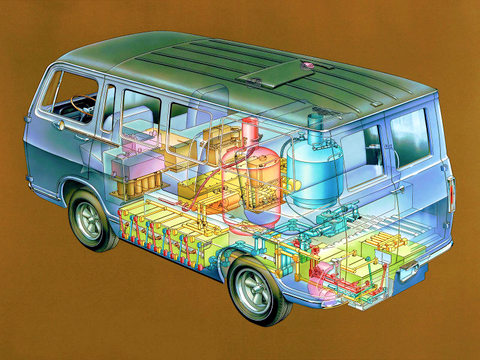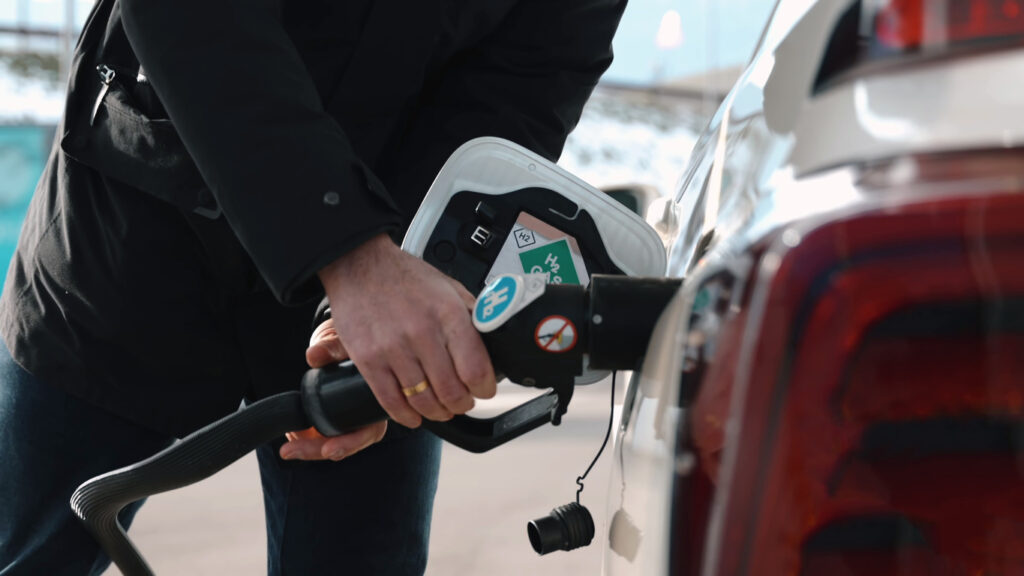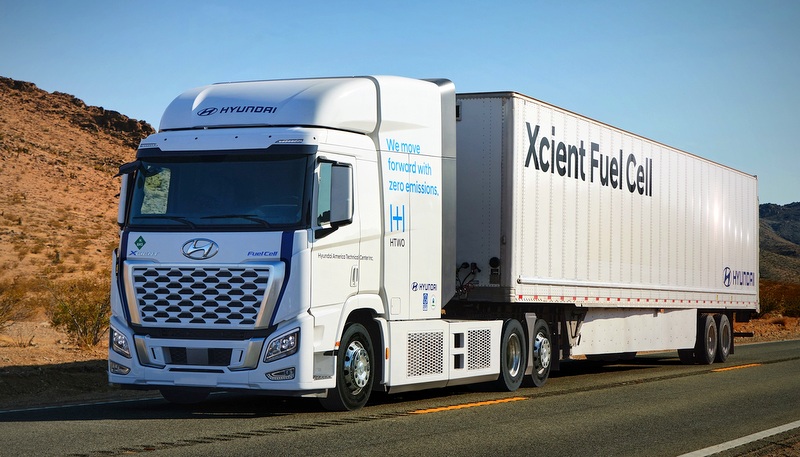A Look at the Lightest Alternative Fuel
Today’s automakers have taken up the mantle of environmental stewardship in new and exciting ways. With growing pressure from consumers, the world’s largest auto brands have invested heavily in eco-friendly vehicles.
Of course, there are a range of eco-friendly vehicles on the market, but one emerging contender is hydrogen-powered cars. So, what’s the state of hydrogen vehicles in 2022 and beyond? How do they stack up against other eco-friendly options?
History of Hydrogen Vehicles

To understand the status of hydrogen vehicles, knowing their history helps. Many people credit General Motors with the first hydrogen-powered vehicle in 1966, which looks like a solid-color version of Fred’s Mystery Machine. This van ran on a fuel cell utilizing liquid hydrogen and oxygen. It could drive approximately 124 miles and had a top speed of nearly 70 miles per hour.
In addition to the Electrovan, developers used hydrogen for other ventures like space missions. NASA used hydrogen fuel for its Apollo 11 mission and continued to do so for more undertakings in the 1980s and 1990s. Research on hydrogen vehicles dipped until the 1990s when European countries announced plans for more hydrogen-centered car power, such as the 2005-07 bi-fuel BMW 7-Series with a V12 engine that ran on either compressed hydrogen or gasoline. Other companies, led by Toyota and Honda, focused on fuel cell vehicles that converted hydrogen to electricity on board so were essentially electric vehicles.
Hydrogen Vehicles in 2022
In 2022, consumers have multiple choices for alternative-fuel vehicles. Electric is among the most popular because it’s been prevalent for longer and there’s been considierably more research. Electrified vehicles (hybrid-electrics) have been commercially available since the late 1990s with the Toyota Prius. Today, there are nearly 8,000 fast-charging stations for electric cars in the United States (and many more of the slower Level 2 type.

The sizeable infrastructure for EVs makes it a direct competitor to alternative fuel sources. Hydrogen vehicles are not as mainstream as EVs and likely won’t pass them this decade. California is essentially the only place in the U.S. with fueling infrastructure for hydrogen vehicles (about 50 stations currently). Only two hydrogen vehicles are currently on the market–the Toyota Mirai and Hyundai Nexo, though other companies have shown prototypes of other models.
The Future of Hydrogen Vehicles
The future of hydrogen cars is more promising in other vehicles. Factors like regulation, investments and research and development will come into play.
Buses and trains will likely be some of the first applications to transition to hydrogen (several buses are already running in revenue service), with the Hydrogen Council predicting heavy-duty trucks will fall farther out on the curve with about 2.5% of hydrogen adoption in 2030.
Hydrogen Pros and Cons
There are pros and cons to every energy source. Some of hydrogen’s cons—which have slowed its development in recent years—are its production and safety. For the production side, it’s more challenging to create this fuel than its alternatives. Hydrogen is the most abundant element on earth, but the molecule doesn’t exist alone, so you must use technology like electrolysis to extract the hydrogen.

In addition to its production, hydrogen fuel has raised questions about its safety in vehicles. Hydrogen is more flammable than gasoline, electric or natural gas vehicles. The element burns with a flame nearly invisible to the human eye, so any hydrogen-powered vehicle needs a special flame detector.
Despite these questions, there are advantages to using hydrogen fuel instead of other green energy sources. For example, a long-haul electric truck needs a long time to recharge—up to six hours. A hydrogen truck would take about 15 minutes to refuel, saving time for truckers and promoting sustainability with clean fuel.
Spreading Usage of Hydrogen Vehicles
Hydrogen-powered cars have come a long way since Chevrolet’s Electrovan. Nearly 60 years later, hydrogen vehicles are slowly becoming mainstream along with other alternatives to fossil fuels. EVs dominate the market for sedans right now, but hydrogen fuel could lead the way for buses, trains and long-haul trucking by the end of this decade and beyond.
Editor’s Note: Clean Fleet Report has driven the current hydrogen vehicles on the market (see review links below) as several previous versions, including the BMW 7-Series. They’re real cars capable of holding their own against comparable models on the road, but as noted in Martin’s story, the fueling infrastructure is limited and not as reliable as one might hope, so their time appears to still be in the future.
Our Hydrogen Vehicle Experiences:
Road Test: 2022 Toyota Mirai Fuel Cell
First Timer: 2021 Toyota Mirai
Flash Drive: 2020 Hyundai Nexo Fuel Cell
First Drive: 2017 Honda Clarity Fuel Cell

I believe that hydrogen fuel cells will only be used in trucks.
@UV Ahir,
The commercial Vehicle interest in fuel cells is pretty high right now, but if you’ve driven a fuel cell car, you might come to a broader conclusion about the market. There’s some significant actuvity going on right now and we’ll keep reported on it. –ed.